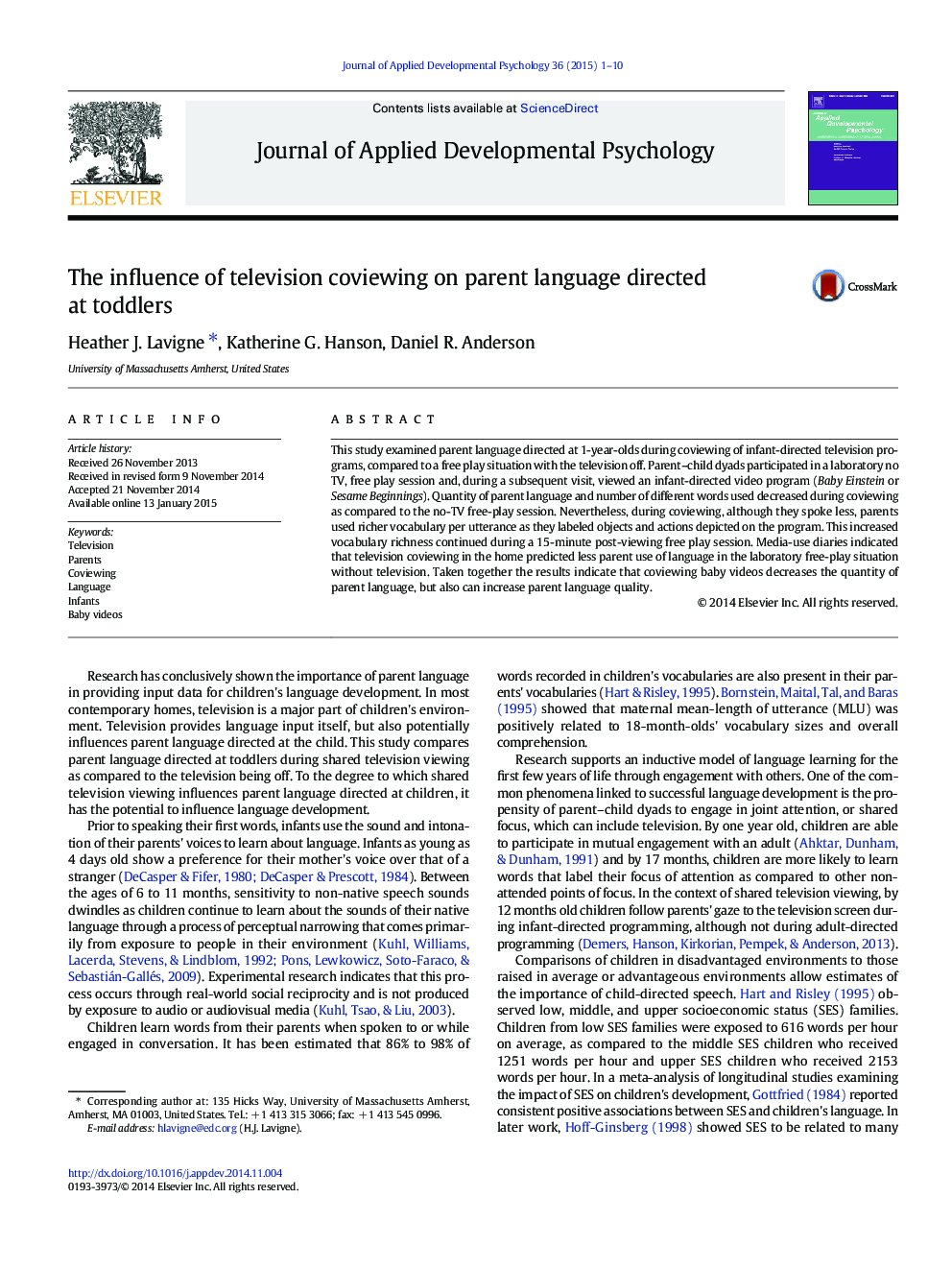| Article ID | Journal | Published Year | Pages | File Type |
|---|---|---|---|---|
| 359690 | Journal of Applied Developmental Psychology | 2015 | 10 Pages |
•We model the influence of video coviewing on quantity and quality of parent language.•Quantity and quality of language decrease during coviewing versus no TV free play.•Parents increase new words per utterance during TV by labeling objects and actions.•Coviewing at home predicts lower parent language during free play in a lab setting.
This study examined parent language directed at 1-year-olds during coviewing of infant-directed television programs, compared to a free play situation with the television off. Parent–child dyads participated in a laboratory no TV, free play session and, during a subsequent visit, viewed an infant-directed video program (Baby Einstein or Sesame Beginnings). Quantity of parent language and number of different words used decreased during coviewing as compared to the no-TV free-play session. Nevertheless, during coviewing, although they spoke less, parents used richer vocabulary per utterance as they labeled objects and actions depicted on the program. This increased vocabulary richness continued during a 15-minute post-viewing free play session. Media-use diaries indicated that television coviewing in the home predicted less parent use of language in the laboratory free-play situation without television. Taken together the results indicate that coviewing baby videos decreases the quantity of parent language, but also can increase parent language quality.
